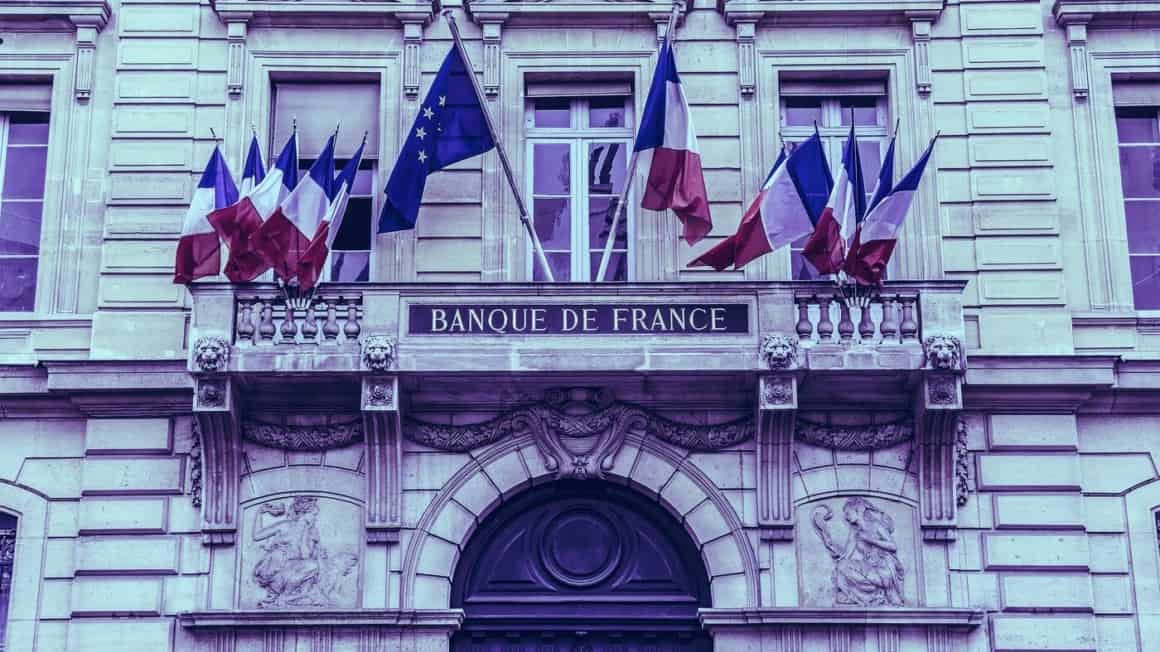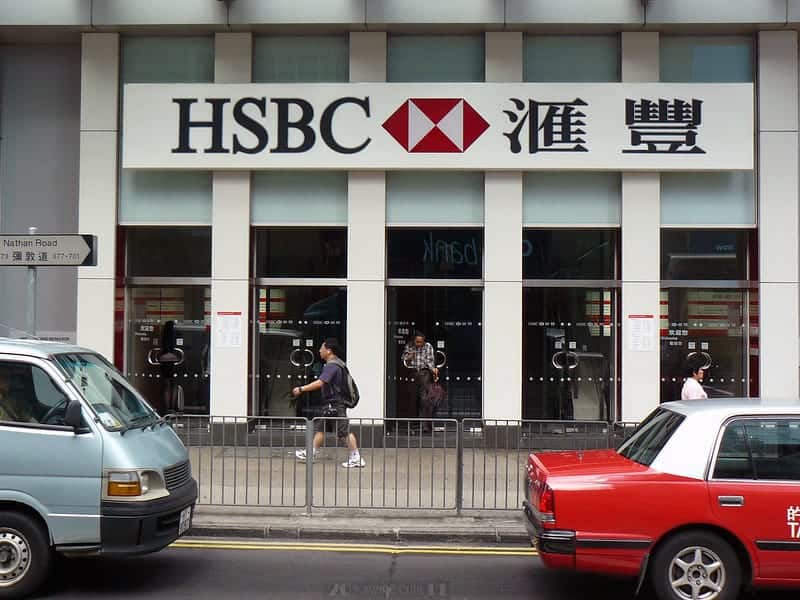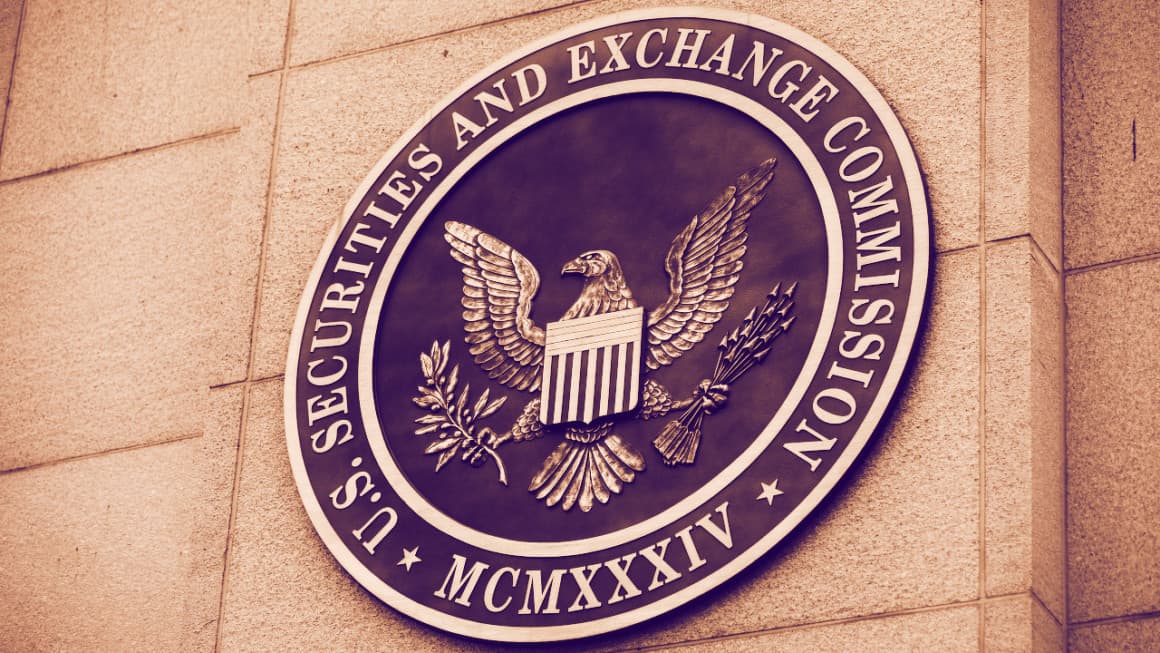In this issue
- Tezos chosen to lead digital franc experiments
- Leaked FinCen files accuse HSBC, JPMorgan and Deutsche Bank of aiding criminals
- Unikrn settles with SEC for $6.1 million
- In China: BSN launches permissioned blockchain
- Funding spotlight: Singapore
From the Editor’s Desk
Dear Reader,
The markets are getting roiled. Asia-focused banks, HSBC and Standard Chartered, continue to deepen losses in the market after they were named in leaked files, now widely reported, to be among the banks allegedly involved in US$2 trillion worth of global criminal activity. There is distrust in the system. Question is, as it moves markets to sell off — where are they putting it to work?
In the latest Current Forkast, we note that the perception of ill-begotten uses and gains using cryptocurrencies still exists. Contrast that with real numbers though, and you might start seeing a disconnect. In 2019, according to Chainalysis’ latest 2020 Crypto Crime Report, only 1.1% of the US$1 trillion in cryptocurrency transactions settled that year was illicit. However, we shouldn’t rest easy on that either. The system we create should evolve and morph into something that should ultimately serve our best purposes, not our worst.
So let’s have an honest conversation, and not let our worst fears dictate how we feel about letting innovation thrive. From France exploring a CBDC (central bank digital currency) to China’s work on Blockchain Services Network to connect East to West, to SEC Commissioner Hester Peirce’s dissension with her colleagues in the latest ruling against a 2017 ICO by Unikrn, innovation is the vehicle.
I echo her words: “By failing to challenge ourselves to experiment with new approaches to regulation, we, and those whose interests we are pledged to serve, risk surrendering the fruits of innovation.”
Innovation is like my three-year-old. A child that must be nurtured, and yes, disciplined so he can learn and thrive. But also remember that his spirit must also be encouraged and protected. What we invest in today, we will realize in the future. I hope we are good parents.
Until the next time,
Angie Lau,
Founder and Editor-in-Chief
1. Mais oui! Tezos to lead digital franc explorations

By the numbers:Tezos — over 5,000% increase in Google search volume.
Public proof-of-stake blockchain Tezos has received the nod from multinational investment bank Societe Generale’s tech arm to lead CBDC experiments in France. SocGen was selected by the French central bank back in July to experiment with CBDC use in interbank settlements.
- While central bank governor François Villeroy de Galhau has been vocal about the possible creation of a CBDC, European Central Bank (ECB) President Christine Lagarde has recently clarified that the ECB is still assessing the introduction of a digital euro.
- “The Eurosystem has so far not made a decision on whether to introduce a digital euro,” Lagarde said. “But, like many other central banks around the world, we are exploring the benefits, risks and operational challenges of doing so.”
Forkast.Insights | What does it mean?
As nations around the world ponder whether to research and build out a CBDC, we’ve covered many cases where the technology would be considered advantageous to its political and economic ambitions — which usually start with building out the currency’s liquidity. Two weeks ago we talked about the difficulties in transaction settlement in South America: a businessman in Brazil would need to settle a transaction with a vendor in Chile in USD (and thus be party to U.S. rules) because neither party’s currency is sufficiently liquid in their respective countries. There would be a huge forex premium, and these friction costs would eat into everyone’s margins. So, there we have a use case for CBDCs.
But in the European Union, there isn’t the same immediate use case. In the E.U., 19 out of 27 member countries use the same currency, and thanks to SEPA, the European Central Bank’s version of FedWire, transfers are nearly instantaneous and operate 24/7. Plus, the euro has very efficient low-friction currency pairs with major currencies like the dollar, Swiss franc, pound and yen. Because the E.U. isn’t party to the same level of sanctions on Iran as the U.S. is, E.U.-based organizations have more leeway to do business in Iran and vice versa (to a certain extent). As more of a neutral, middle power, the E.U. doesn’t have the same hegemonic ambitions as the United States: China’s desire to have the RMB as the currency-of-choice for settlements is aiming to take out the USD’s market share, and not the euro’s.
There aren’t the same pain points that would necessitate the creation of a CBDC with the euro as there are for other currencies. While medium-sized regional economies with their own currency, like Brazil or South Korea may have reason to develop a CBDC to foster more frictionless payments with neighboring countries, the same incentives and pressures just don’t hold true for countries in Europe, as the E.U.’s smallest and largest economies all use the euro.
2. Leaked docs allege banks helped move $2 trillion in dirty money

By the numbers: FinCEN files — over 5,000% increase in Google search volume.
Leaked secret documents have exposed that big banks such as JPMorgan Chase, Deutsche Bank, Bank of America, Citigroup, HSBC and Standard Chartered allegedly have been aiding money laundering and other illicit financial activity by allowing criminals to move around US$2 trillion in dirty money from 2000 to 2017. The leaked files include over 2,100 “suspicious activity reports” (SARs) sent by banks to the U.S. Department of Treasury’s Financial Crime Enforcement Network (FinCEN) to flag potential criminal activities. But despite banks’ knowledge and concerns, they processed the questionable transactions anyway.
- The leaked documents were obtained by BuzzFeed News and shared with the International Consortium of Investigative Journalists (ICIJ). More than 100 news organizations participated in the investigation.
- According to the ICIJ, FinCEN and the Treasury Department did not answer questions sent by the ICIJ. FinCEN, however, told BuzzFeed News that it does not comment on the “existence or non-existence” of specific SARs.
Forkast.Insights | What does it mean?
Will somebody cut the cryptocurrency industry some slack?
Getting banks to allow cryptocurrency payment processors to interact with the traditional financial system has taken a herculean effort. Warning that cryptocurrency is the vehicle-of-choice for money laundering, organized crooks, and terrorists, banks have been doing their best to block crypto companies from accessing the traditional financial system. In some places, even companies in the blockchain — not cryptocurrency — industry had a tough time opening accounts just because of the industry’s negative associations.
But leave it to the traditional financial industry to do the same evils that cryptocurrencies are accused of. BuzzFeed’s investigation shows that banking giants like HSBC and Deutsche Bank helped wealthy oligarchs evade sanctions, and drug kingpins launder money. According to reports from German public broadcaster DW, Deutsche Bank was said to be carrying out transactions for its customers using “non-transparent methods and practices” to disguise its actions. Deutsche Bank played a key role in helping Iranian banks cut off from the SWIFT network to keep liquidity by facilitating the transfer of Iranian gold and oil for USD.
The irony of it all is that only 1.1% of the $1 trillion in crypto transactions settled in 2019 was illicit, and from this, the vast majority appeared to be darknet market sales, according to the Crypto Crime Report by Chainalysis. Overall as the cryptocurrency industry expands and matures, the illicit use cases for crypto diminish when compared to the rest of the industry at large.
Traditional banks, not blockchain, still facilitate the lion’s share of the world’s money laundering and white-collar crime, While they no doubt will face public consternation and some backlash, nothing much will likely change in the short term. FinCEN received 2 million SARs last year while the Treasury cut its staffing levels. Sources told BuzzFeed that most reports are not read, let alone acted upon. Big banks and traditional finance poured $2 billion into lobbying and campaign contributions in 2018, the last federal election year. Cryptocurrency doesn’t have any lobbying power — but it does still have the reputation and stigma.
3. Unikrn settles with SEC

By the numbers: Unikrn — 2,800 % increase in Google search volume.
Unikrn, the esports gambling venture supported by Mark Cuban and Ashton Kutcher, settled with the SEC for US$ 6.1 million in fines and refunds to investors. Unikrn has also announced the retirement of its portfolio tokens.
- “Unikrn promised investors that it would facilitate a secondary trading market for the tokens and that its efforts to increase the usages for the UKG token would increase demand for and in turn, the value of the tokens,” according to the SEC.
- But SEC commissioner Hester Peirce came to Unikrn’s defense. “We should strive to avoid enforcement actions and sanctions, however, that enervate innovation and stifle the economic growth that innovation brings,” Peirce said.
Forkast.Insights | What does it mean?
Unikrn entered the world just as esports was booming. But despite all the interest in the new sports vertical, at the time sports betting online wasn’t really legal. Platforms that allowed it were all domiciled offshore, forcing bettors to traverse virtually to some far off land to play the odds.
But all of that changed in the last few years. Due to the surging interest in monetizing fantasy sports, the New Jersey Supreme Court legalized online sports betting in a May 2018 ruling, and the state quickly became a hub for online sports gambling. Twenty-two states have since followed, making online sports-betting a mainstream market segment. New Jersey alone has reported $162.6 million in revenue this year so far — an impressive figure considering that professional sports is on a limited season due to Covid-19.
All this spelled trouble for a company like Unikrn, even before its SEC slapdown. Its gray area crypto offerings and offshore betting was pushed out of the market by legal onshore offerings. There may be no demand for this platform now that the established giants of gambling have set up shop in the esports sector.
4. In China: Nationwide blockchain network offers permissioned chain

The Blockchain Service Network (BSN) is cooperating with Huobi Group to launch BSN Public Permissioned Blockchain, to make the public chain technology comply with China’s regulatory requirements, according to BSN’s official WeChat post. The Public Permissioned Blockchain project is scheduled to start in September and has set mid-November as a launch date.
- According to Yifan He, the CEO of Red Date Technology, Public Permissioned Blockchain is a combination of permissioned blockchain and public chain.
- In July this year, BSN was officially split into two — BSN International and BSN China. BSN International has integrated in six public chains, including NEO, Nervos and Ethereum. BSN China has no public chain to be integrated. Instead it will have five city nodes connected with BSN International, but the decentralized apps (dApps) operating in the five city nodes need to obey Chinese law and regulations.
Forkast.Insights | What does it mean?
When BSN announced that it had to split into two networks, it almost immediately lost its value proposition. BSN was supposed to connect the East and West, allowing blockchain without borders. This enormous scale would give a huge incentive to develop dApps on the blockchain as they could be deployed across dozens of nodes and easily be distributed to users around the globe.
But this plan was a bit too ambitious, and didn’t match up with the regulatory reality of China where blockchains that have a tradable token are prohibited and encryption keys need to be registered with Beijing.
Launching a permissioned chain would be the first step in rebooting this dream of a properly international platform. This isn’t going to allow Ethereum to run natively on BSN nodes in China, but with proper cross-chain compatibility, it could allow an Ethereum app to run on Chinese BSN nodes. Given BSN’s scale — if projections hold true — ensuring that your dApp would be fully compatible and compliant with BSN’s permissioned chain is going to be a must.
5. Funding spotlight: Fintech in Singapore
TranSwap — Singapore, undisclosed
TranSwap is a foreign currency matching platform that brings together buyers of foreign currency with those who want to sell it. This is particularly useful for those looking to purchase currency but don’t have a lot of liquidity in their home market, as banks would have hefty margins for such currencies.
The round was led by the AMTD-Asean Solidarity Fund — an offshoot from Singapore’s AMTD and targets businesses potentially impacted by Covid-19. This fund was established by AMTD Group’s Singapore-based subsidiary AMTD Digital, the group’s charitable arm, and non-profit entity Asean Financial Innovation Network (AFIN).
CardUp — venture, Singapore, $2.5 million
CardUp is a platform that allows consumers in Asia to split large purchases into installment payments. This latest round was also led by the AMTD solidarity fund, and CardUp has raised prior rounds led by Sequoia Capital.
Forkast.Insights | What does it mean?
This week’s funding spotlight looks at two companies that have made it their mission to find efficiencies in the financial system. Within Southeast Asia, there are many currencies that have low volume and high forex costs when traded outside the usual, established currency pairs. That’s not to say there’s no demand for, say, swapping Indonesian rupiah for New Taiwan dollars; it’s just that on average, the demand is low without using an intermediary like the USD.
With CardUp there’s a similar hunt for efficiencies: a credit market exists within the region, but its overall lack of maturity means that it hasn’t caught up with demand from consumers. Incomes are rising, but some consumers might feel that they don’t have enough for the big ticket items that catch their eye. Instead of seeking alternative credit sources, which because of market immaturity might be unregulated and have high rates, with CardUp they can stick with their existing relationship with their credit card provider.
We’ve seen similar platforms before that allow for installment payments. Singapore’s Split gives merchants a line of credit so they can offer installments. This is the first one from the consumer side.




